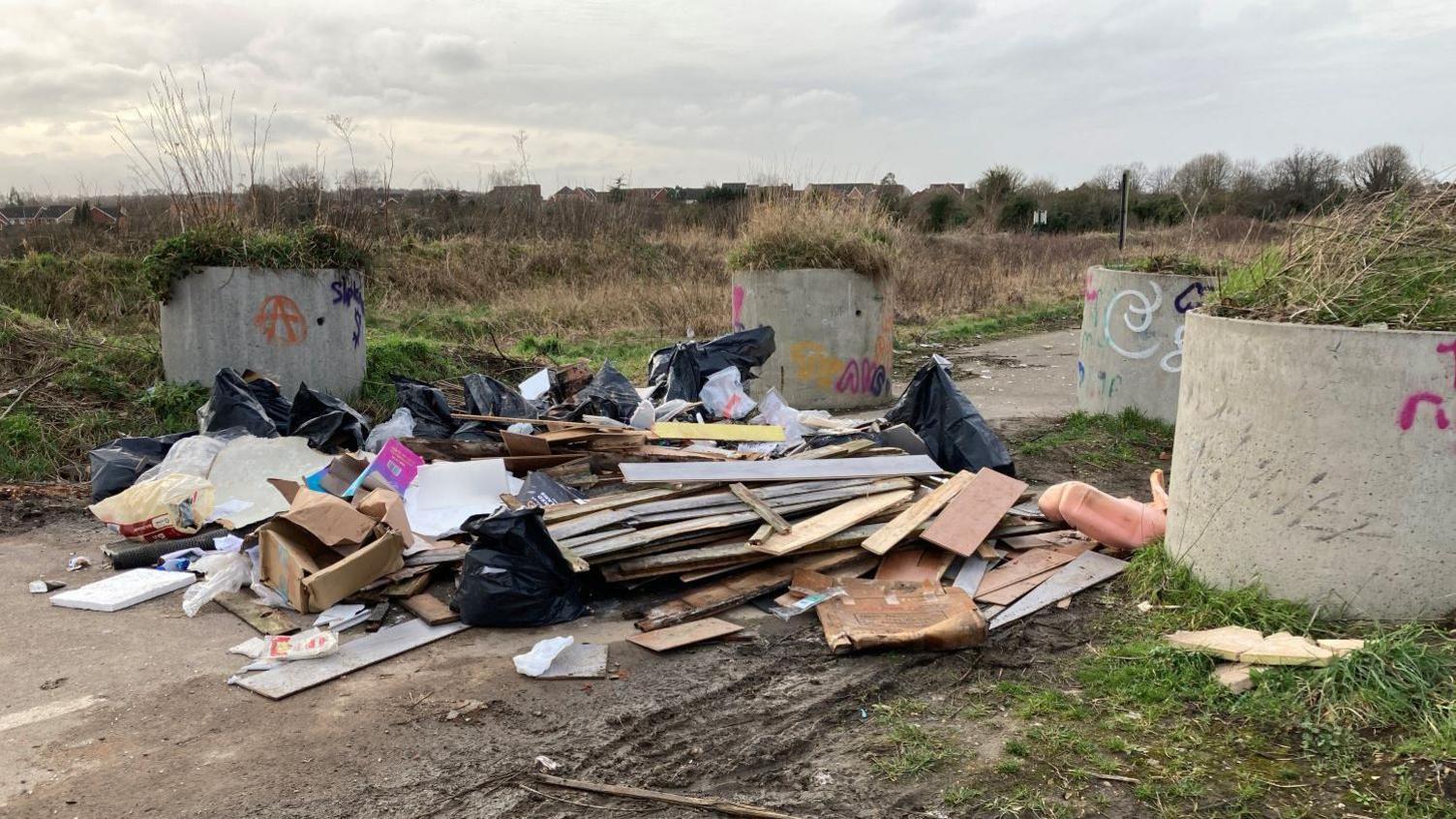Town's fly-tip figures 'to soar due to data changes'
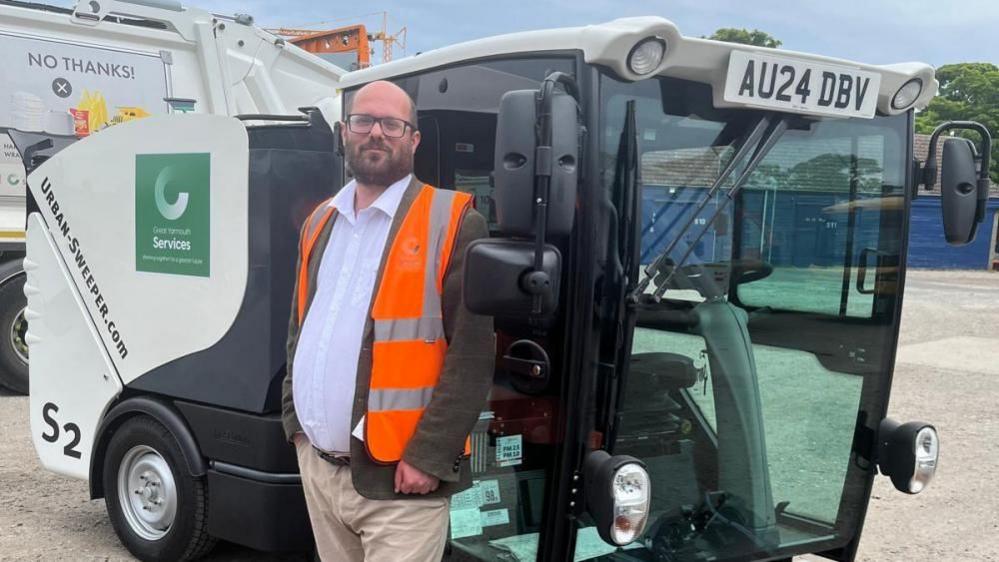
Paul Wells, from Great Yarmouth Borough Council, said it was important to correctly log all incidents of fly-tipping
- Published
The number of recorded fly-tipping incidents in a town is set to soar, a Norfolk council said, as it changes the way it documents illegally dumped waste.
Great Yarmouth Borough Council (GYBC) said it previously only recorded fly-tipped rubbish when it was reported by the public, meaning waste found overflowing from bins or discovered by council workers was not noted.
The authority said it was important taxpayers understood the full cost and workload illegal dumping placed on its finances.
It encouraged anyone who had evidence that could lead to a prosecution to forward information to its environmental rangers.
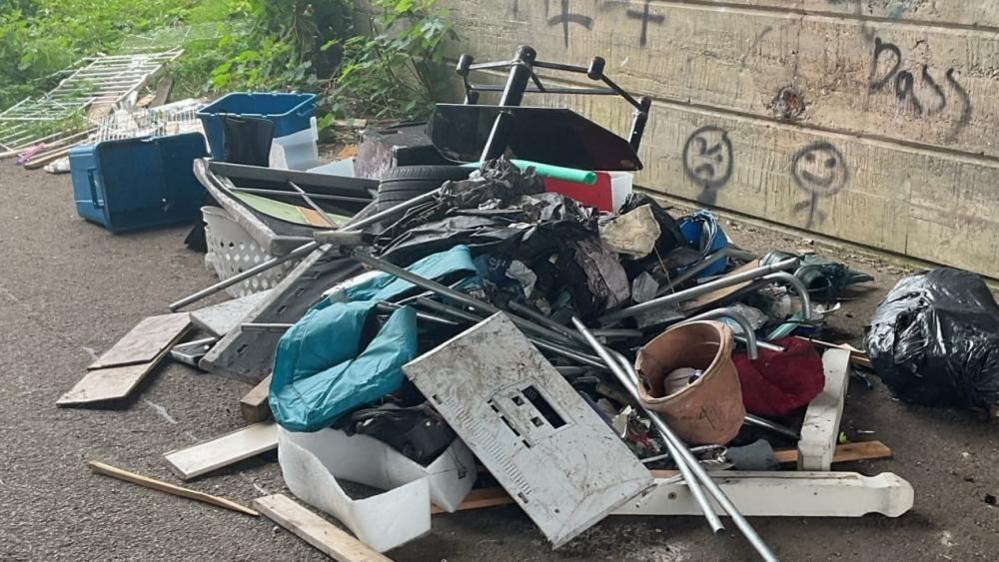
Discarded household appliances were found under Barnard Bridge in Great Yarmouth in one incident
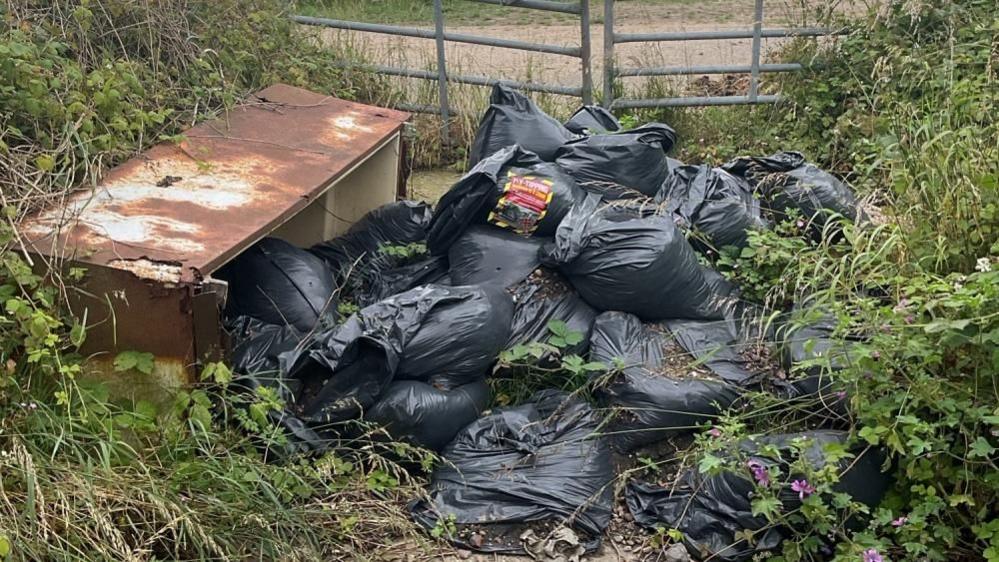
Fly-tipped rubbish has also been found near the A149 Caister bypass.
Paul Wells, portfolio holder for the environment and waste at the council, said: "We've changed the way we record our fly-tipping data because we were not demonstrating the real level of work that GYS [Great Yarmouth Services] operatives were doing on the ground
"So we are now recording the fly-tips that we spontaneously pick up and collect, and we are properly recording when there is fly-tipping around the litter bins."
He said previous methodology meant the true cost, and the physical effort, was not being correctly reported to taxpayers who ultimately footed the bill.
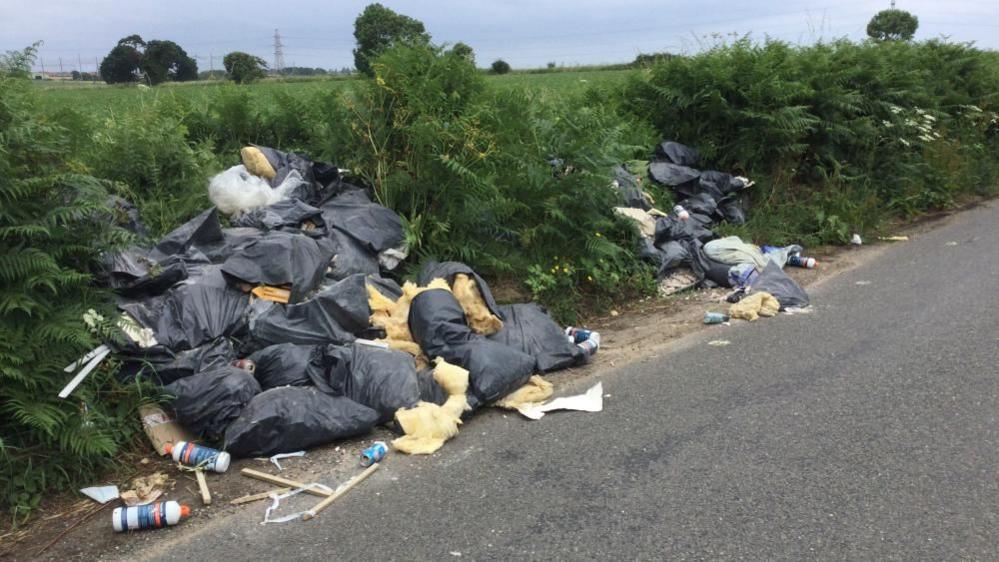
Great Yarmouth Borough Council said it was now recording fly-tipped rubbish found by its workers, not just waste reported by the public
Mr Wells said the authority had a strong track record of investigating fly-tipped waste, leading to prosecutions through the courts system.
He urged anyone with evidence to report it.
"What we need is clear evidence of the waste being dropped and the person who has dropped it being identifiable," he said.
"Sometimes people make our life very easy; they drop things with their receipts and addresses and we are able to trace it back. It's building up a jigsaw puzzle of who is doing it at certain times."
Follow Norfolk news on BBC Sounds, Facebook, external, Instagram, external and X, external.
Related topics
You may also be interested in
- Published10 February 2024
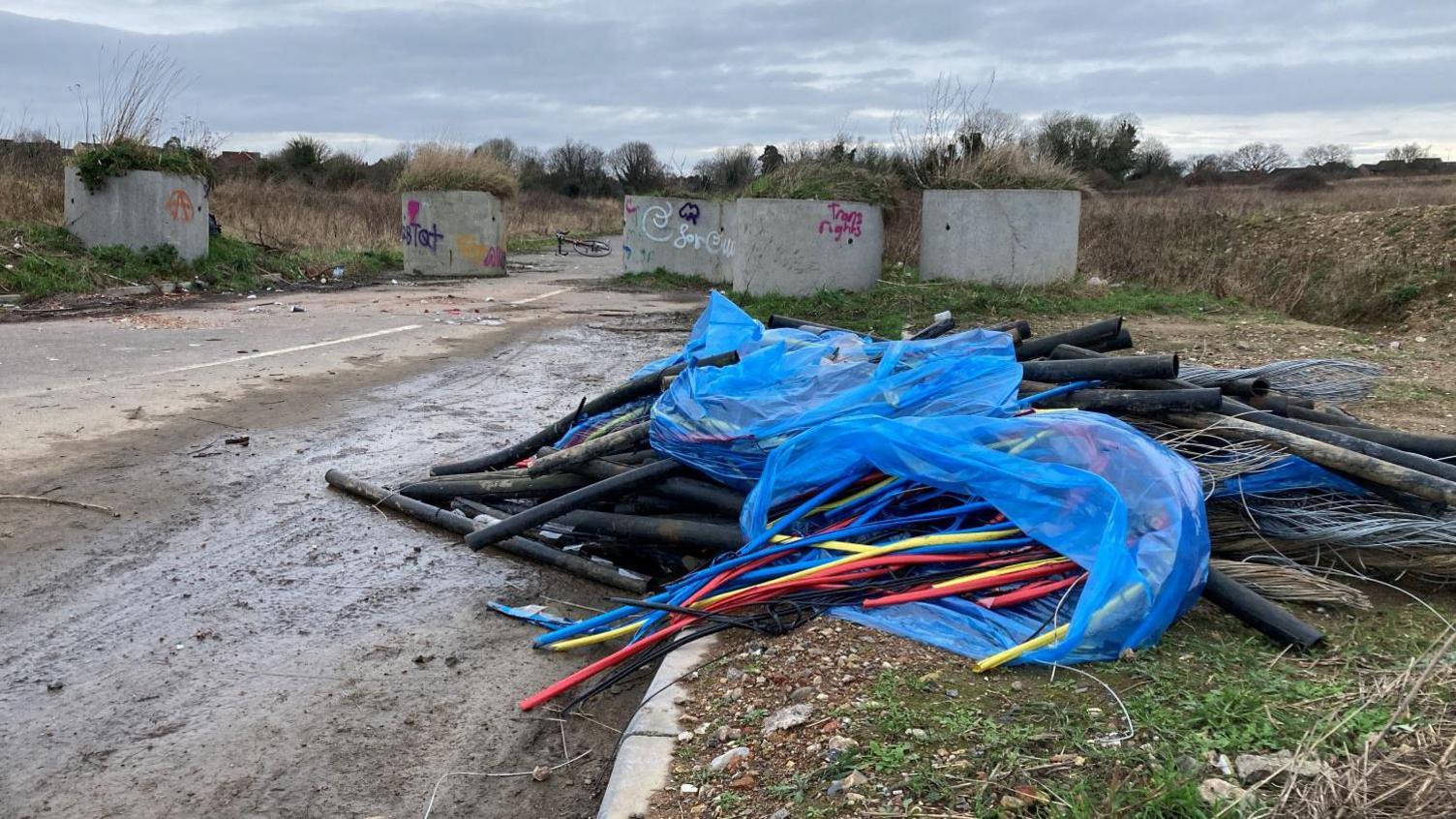
- Published27 February 2024
